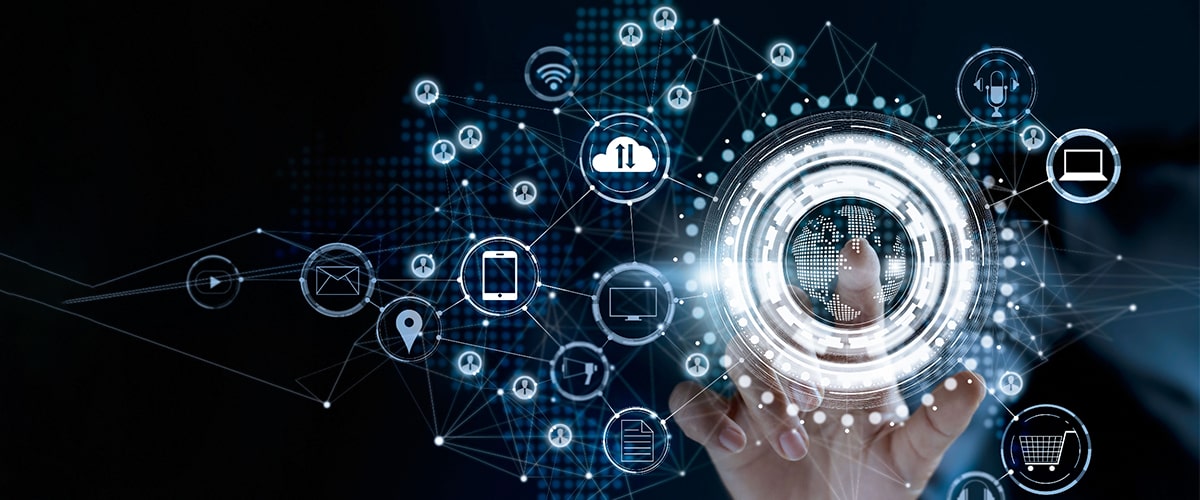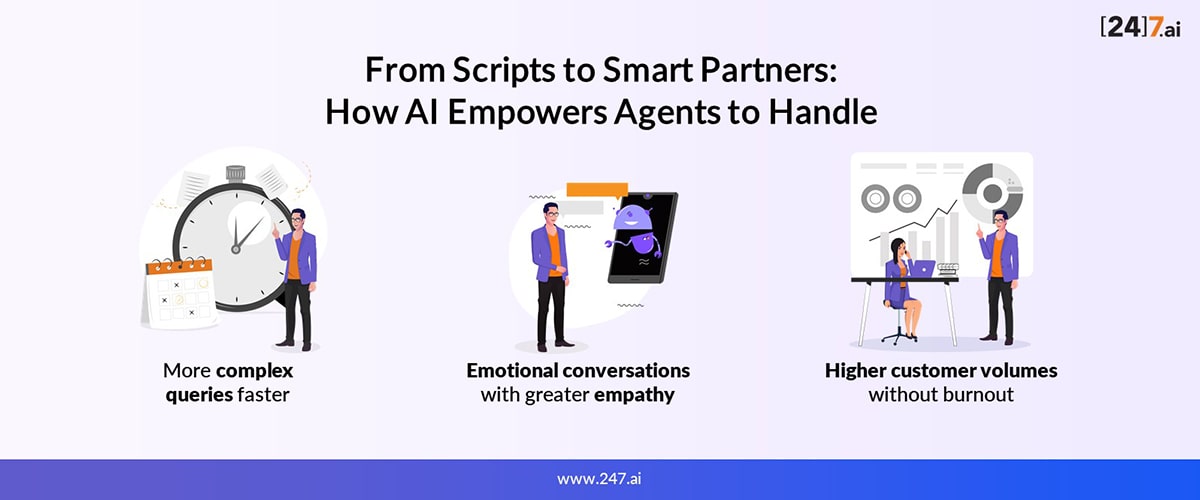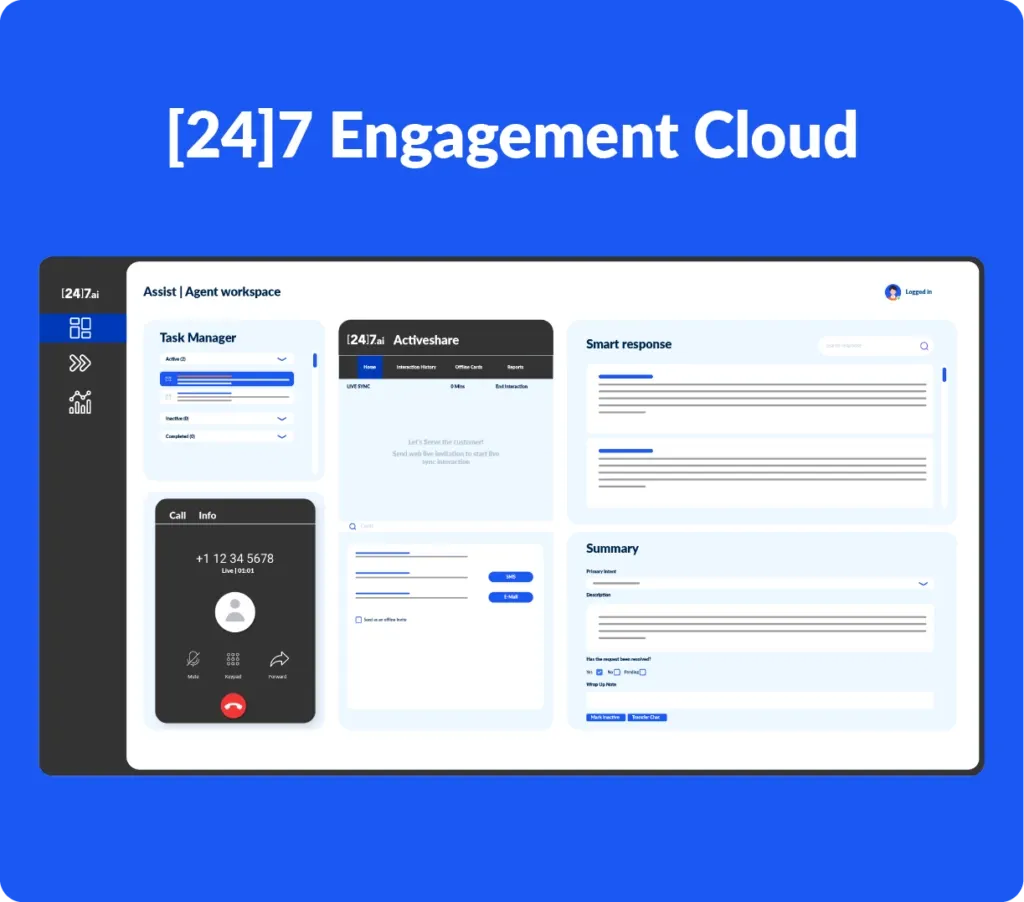Table of contents
- Introduction
- AI-Powered Customer Support with a Human Touch
- Hyper-Personalization at Scale
- Proactive and Predictive Customer Service
- Seamless Omnichannel Experiences
- Human-AI Collaboration and Agent Augmentation
- Empowering Self-Service Options
- Emotional Intelligence in AI
- Data Privacy and Ethical AI
- Customer Journey Orchestration
- Community and Peer Support
- Putting Automation at the Heart of Strategy
- FAQs
There is no doubt, customer service (CS) has always played a significant role in any company’s success. However, as we move towards 2026, CS will become much more strategic. With rapid advancements in technology, shifting consumer expectations, and growing emphasis on personalization and trust, businesses will no longer compete purely on product or price. Instead, in coming years customer service and especially customer experience will be the ultimate differentiator.
As we look ahead, here are the top 10 customer service trends that will shape 2026 and beyond and what businesses should do to stay ahead.

AI-Powered Customer Support: with a Human Touch
Artificial intelligence is no longer a futuristic concept, it is the backbone of modern customer service. In 2026, AI, including generative AI and agentic AI, will be integral for managing routine inquiries, offering personalized solutions, and accelerating response times. But the winning edge lies in the human touch. Customers still value empathy, reassurance, and nuanced understanding in emotionally charged situations.
Forward-looking companies will use AI to handle high-volume, repetitive interactions while empowering human agents to focus on complex, value-driven conversations. The aim is not to replace humans, but to enhance them with AI-powered intelligence.
Hyper-Personalization at Scale
Generic customer interactions will be a thing of the past. GSIs will provide organizations the ability, by 2026, to use AI algorithms and all of their customer data to create one-to-one personalization at scale. McKinsey research indicates that personalization can increase revenues by 5 – 15%, as well as greatly enhance customer loyalty.
Imagine a support system that knows more than your purchase history, your preferences, sentiment and digital behaviors. This allows brands to customize communication, recommend solutions, and even develop anticipated needs, even before customers express them.Personalization will no longer be optional; it will be expected.
Proactive and Predictive Customer Service
In the past, customer service was reactive, also customers reported issues, and businesses responded. In 2026, companies will shift toward anticipatory customer service using predictive analytics and AI.
For example:
- Airlines predicting possible delays and offering rebooking before passengers even contact support.
- Telecom providers detect network issues and proactively alert users. This frictionless, proactive engagement builds trust and flips the service function from problem-solving to problem-preventing.
Seamless Omnichannel Experiences
Today’s customers fluidly move across channels, starting with social media from shifting to chat, and concluding via email or phone. By 2026, customers will expect brands to offer consistency across all digital and human touchpoints.
A customer should never have to repeat their issue when switching from a chatbot to a live agent or from email to voice. To achieve this, companies need robust CRM and omnichannel orchestration platforms that ensure information continuity. Digitizing customer service, particularly through proactive omnichannel interactions can enhance customer satisfaction by 33% while simultaneously reducing costs by 25–35%.
The mantra for 2026: ‘Meet customers where they are, not where you want them to be.’

Human-AI Collaboration and Agent Augmentation
AI doesn’t replace customer service agents, it augments them. In 2026, AI-assisted agents will rely on tools that summarize customer interactions, suggest contextual responses, and surface insights in real time.
Instead of scripting agents, AI will act as an intelligent partner, enabling them to handle:
- More complex queries faster.
- Emotional conversations with greater empathy.
- Higher customer volumes without burnout.
- BPOs and Outsourcing Providers

Companies that equip their agents with AI copilots will deliver faster, smarter, and more compassionate service.
Empowering Self-Service Options
The modern customer increasingly prefers solving problems independently. In fact, research shows that close to 70% of customers attempt self-service before seeking help. By 2026, AI-powered self-service platforms such as smart FAQs, interactive chatbots, and advanced knowledge bases will be standard.
The goal is twofold:
- Give customers instant solutions without waiting.
- Free up human agents for critical, high-value cases.
Companies that fail to build intuitive self-service risk frustrating customers, while those who invest will benefit from efficiency and customer satisfaction simultaneously.
Emotional Intelligence in AI
A major leap in 2026 should be the rise of emotion-aware AI systems. Using voice analysis, sentiment detection, and natural language understanding, AI will increasingly be able to gauge customer mood and adjust tone accordingly.
Imagine a chatbot identifying frustration and instantly escalating to a human agent with context, or proactively softening its language when recognizing signs of stress. By bringing empathy into AI conversations, businesses will bridge the emotional gap between technology and customers.
Data Privacy and Ethical AI
As AI adoption accelerates, so do concerns around privacy, transparency, and bias. In 2026, compliance with regulations such as GDPR, CCPA, and emerging global frameworks will be non-negotiable. Customers expect clear visibility into how their data is used and reassurance that AI-driven decisions are fair and unbiased.
Responsible companies will adopt ethical AI practices, regularly auditing their models to prevent bias and ensuring explainability. Prioritizing transparency will directly translate into greater customer trust, a critical differentiator in an AI-driven world.
Customer Journey Orchestration
Customer interactions are rarely linear,they span marketing, sales, onboarding, and long-term support. In 2026, successful companies will adopt customer journey orchestration platforms that unify and optimize these touchpoints.
The benefit? Seamless, tailored experiences from the first website visit to ongoing loyalty programs. Rather than addressing each interaction in isolation, customer service teams will work strategically to curate end-to-end journeys that drive satisfaction and retention.
Community and Peer Support
In 2026, customers will increasingly find answers in peer-to-peer communities, forums, and digital ecosystems. These communities not only reduce the load on official support teams but also foster brand engagement and customer advocacy.
Forward-thinking brands will facilitate and moderate online communities, empowering customers to share best practices or troubleshoot solutions collaboratively. When customers feel part of a brand ecosystem, loyalty naturally deepens.
Put Customer Service Automation at the Heart of Your Strategy
To truly thrive in 2026 and beyond, businesses must rethink customer service as an active, data-driven engine of their overall strategy. This is where modern customer service automation platforms, such as the solutions offered by [24]7.ai come into play.
Integrating solutions by [24]7.ai enables companies to deliver seamless omnichannel support that transitions smoothly between AI chatbots and live agents, leverage actionable analytics to personalize every interaction, empower customers with intelligent self-service complemented by empathetic human support, and uphold data privacy with ethical AI practices that build lasting trust.
Modern automation solutions aren’t about replacing human service; they’re about enhancing it, making every touchpoint faster, more efficient, and more personalized. Adopting these robust platforms ensures that your business remains not just relevant, but essential, as expectations continue to rise.
The future is clear: customer service automation is central to business excellence. Make customer experience your core strategy, and leverage advanced platforms such as [24]7.ai to lead your organization into the new era of customer-centricity. Turn every engagement into an opportunity to build trust, create value, and secure competitive advantage.
Frequently Asked Questions
Not entirely but certainly trust grows when AI efficiency is paired with human empathy.
They will expect service that’s instant, personalized, and proactive, no more waiting or repeating issues.
Yes, automation can do that by reducing friction and resolving problems faster, it builds reliability, which strengthens loyalty.
The biggest risks are data privacy concerns, AI bias, and losing the human connection if balance isn’t maintained.
Absolutely, by 2026, product and price alone won’t be enough; service quality will decide winners and losers.



